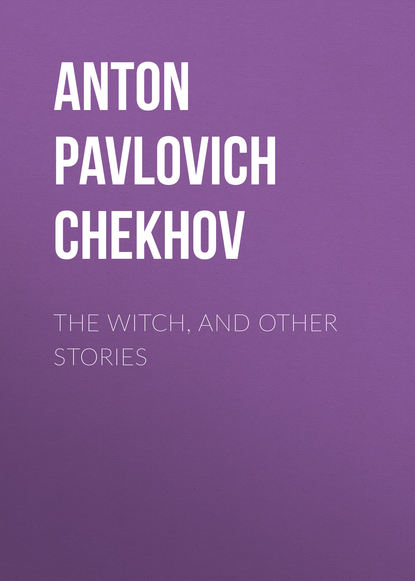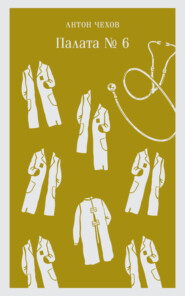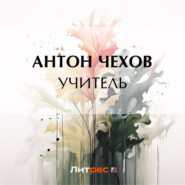По всем вопросам обращайтесь на: info@litportal.ru
(©) 2003-2024.
✖
The Witch, and Other Stories
Настройки чтения
Размер шрифта
Высота строк
Поля
“Perfect swans!” said Rodion, gazing at them with reverent admiration.
His wife Stepanida, his children and grandchildren came out into the street to look at them. By degrees a crowd collected. The Lytchkovs, father and son, both men with swollen faces and entirely beardless, came up bareheaded. Kozov, a tall, thin old man with a long, narrow beard, came up leaning on a stick with a crook handle: he kept winking with his crafty eyes and smiling ironically as though he knew something.
“It’s only that they are white; what is there in them?” he said. “Put mine on oats, and they will be just as sleek. They ought to be in a plough and with a whip, too…”
The coachman simply looked at him with disdain, but did not utter a word. And afterwards, while they were blowing up the fire at the forge, the coachman talked while he smoked cigarettes. The peasants learned from him various details: his employers were wealthy people; his mistress, Elena Ivanovna, had till her marriage lived in Moscow in a poor way as a governess; she was kind-hearted, compassionate, and fond of helping the poor. On the new estate, he told them, they were not going to plough or to sow, but simply to live for their pleasure, live only to breathe the fresh air. When he had finished and led the horses back a crowd of boys followed him, the dogs barked, and Kozov, looking after him, winked sarcastically.
“Landowners, too-oo!” he said. “They have built a house and set up horses, but I bet they are nobodies – landowners, too-oo.”
Kozov for some reason took a dislike from the first to the new house, to the white horses, and to the handsome, well-fed coachman. Kozov was a solitary man, a widower; he had a dreary life (he was prevented from working by a disease which he sometimes called a rupture and sometimes worms) he was maintained by his son, who worked at a confectioner’s in Harkov and sent him money; and from early morning till evening he sauntered at leisure about the river or about the village; if he saw, for instance, a peasant carting a log, or fishing, he would say: “That log’s dry wood – it is rotten,” or, “They won’t bite in weather like this.” In times of drought he would declare that there would not be a drop of rain till the frost came; and when the rains came he would say that everything would rot in the fields, that everything was ruined. And as he said these things he would wink as though he knew something.
At the New Villa they burned Bengal lights and sent up fireworks in the evenings, and a sailing-boat with red lanterns floated by Obrutchanovo. One morning the engineer’s wife, Elena Ivanovna, and her little daughter drove to the village in a carriage with yellow wheels and a pair of dark bay ponies; both mother and daughter were wearing broad-brimmed straw hats, bent down over their ears.
This was exactly at the time when they were carting manure, and the blacksmith Rodion, a tall, gaunt old man, bareheaded and barefooted, was standing near his dirty and repulsive-looking cart and, flustered, looked at the ponies, and it was evident by his face that he had never seen such little horses before.
“The Kutcherov lady has come!” was whispered around. “Look, the Kutcherov lady has come!”
Elena Ivanovna looked at the huts as though she were selecting one, and then stopped at the very poorest, at the windows of which there were so many children’s heads – flaxen, red, and dark. Stepanida, Rodion’s wife, a stout woman, came running out of the hut; her kerchief slipped off her grey head; she looked at the carriage facing the sun, and her face smiled and wrinkled up as though she were blind.
“This is for your children,” said Elena Ivanovna, and she gave her three roubles.
Stepanida suddenly burst into tears and bowed down to the ground. Rodion, too, flopped to the ground, displaying his brownish bald head, and as he did so he almost caught his wife in the ribs with the fork. Elena Ivanovna was overcome with confusion and drove back.
II
The Lytchkovs, father and son, caught in their meadows two cart-horses, a pony, and a broad-faced Aalhaus bull-calf, and with the help of red-headed Volodka, son of the blacksmith Rodion, drove them to the village. They called the village elder, collected witnesses, and went to look at the damage.
“All right, let ‘em!” said Kozov, winking, “le-et em! Let them get out of it if they can, the engineers! Do you think there is no such thing as law? All right! Send for the police inspector, draw up a statement!..”
“Draw up a statement,” repeated Volodka.
“I don’t want to let this pass!” shouted the younger Lytchkov. He shouted louder and louder, and his beardless face seemed to be more and more swollen. “They’ve set up a nice fashion! Leave them free, and they will ruin all the meadows! You’ve no sort of right to ill-treat people! We are not serfs now!”
“We are not serfs now!” repeated Volodka.
“We got on all right without a bridge,” said the elder Lytchkov gloomily; “we did not ask for it. What do we want a bridge for? We don’t want it!”
“Brothers, good Christians, we cannot leave it like this!”
“All right, let ‘em!” said Kozov, winking. “Let them get out of it if they can! Landowners, indeed!”
They went back to the village, and as they walked the younger Lytchkov beat himself on the breast with his fist and shouted all the way, and Volodka shouted, too, repeating his words. And meanwhile quite a crowd had gathered in the village round the thoroughbred bull-calf and the horses. The bullcalf was embarrassed and looked up from under his brows, but suddenly lowered his muzzle to the ground and took to his heels, kicking up his hind legs; Kozov was frightened and waved his stick at him, and they all burst out laughing. Then they locked up the beasts and waited.
In the evening the engineer sent five roubles for the damage, and the two horses, the pony and the bull-calf, without being fed or given water, returned home, their heads hanging with a guilty air as though they were convicted criminals.
On getting the five roubles the Lytchkovs, father and son, the village elder and Volodka, punted over the river in a boat and went to a hamlet on the other side where there was a tavern, and there had a long carousal. Their singing and the shouting of the younger Lytchkov could be heard from the village. Their women were uneasy and did not sleep all night. Rodion did not sleep either.
“It’s a bad business,” he said, sighing and turning from side to side. “The gentleman will be angry, and then there will be trouble… They have insulted the gentleman… Oh, they’ve insulted him. It’s a bad business…”
It happened that the peasants, Rodion amongst them, went into their forest to divide the clearings for mowing, and as they were returning home they were met by the engineer. He was wearing a red cotton shirt and high boots; a setter dog with its long tongue hanging out, followed behind him.
“Good-day, brothers,” he said.
The peasants stopped and took off their hats.
“I have long wanted to have a talk with you, friends,” he went on. “This is what it is. Ever since the early spring your cattle have been in my copse and garden every day. Everything is trampled down; the pigs have rooted up the meadow, are ruining everything in the kitchen garden, and all the undergrowth in the copse is destroyed. There is no getting on with your herdsmen; one asks them civilly, and they are rude. Damage is done on my estate every day and I do nothing – I don’t fine you or make a complaint; meanwhile you impounded my horses and my bull calf and exacted five roubles. Was that right? Is that neighbourly?” he went on, and his face was so soft and persuasive, and his expression was not forbidding. “Is that the way decent people behave? A week ago one of your people cut down two oak saplings in my copse. You have dug up the road to Eresnevo, and now I have to go two miles round. Why do you injure me at every step? What harm have I done you? For God’s sake, tell me! My wife and I do our utmost to live with you in peace and harmony; we help the peasants as we can. My wife is a kind, warm-hearted woman; she never refuses you help. That is her dream – to be of use to you and your children. You reward us with evil for our good. You are unjust, my friends. Think of that. I ask you earnestly to think it over. We treat you humanely; repay us in the same coin.”
He turned and went away. The peasants stood a little longer, put on their caps and walked away. Rodion, who always understood everything that was said to him in some peculiar way of his own, heaved a sigh and said:
“We must pay. ‘Repay in coin, my friends’… he said.”
They walked to the village in silence. On reaching home Rodion said his prayer, took off his boots, and sat down on the bench beside his wife. Stepanida and he always sat side by side when they were at home, and always walked side by side in the street; they ate and they drank and they slept always together, and the older they grew the more they loved one another. It was hot and crowded in their hut, and there were children everywhere – on the floors, in the windows, on the stove… In spite of her advanced years Stepanida was still bearing children, and now, looking at the crowd of children, it was hard to distinguish which were Rodion’s and which were Volodka’s. Volodka’s wife, Lukerya, a plain young woman with prominent eyes and a nose like the beak of a bird, was kneading dough in a tub; Volodka was sitting on the stove with his legs hanging.
“On the road near Nikita’s buckwheat… the engineer with his dog…” Rodion began, after a rest, scratching his ribs and his elbow. “‘You must pay,’ says he… ‘coin,’ says he… Coin or no coin, we shall have to collect ten kopecks from every hut. We’ve offended the gentleman very much. I am sorry for him…”
“We’ve lived without a bridge,” said Volodka, not looking at anyone, “and we don’t want one.”
“What next; the bridge is a government business.”
“We don’t want it.”
“Your opinion is not asked. What is it to you?”
“‘Your opinion is not asked,’” Volodka mimicked him. “We don’t want to drive anywhere; what do we want with a bridge? If we have to, we can cross by the boat.”
Someone from the yard outside knocked at the window so violently that it seemed to shake the whole hut.
“Is Volodka at home?” he heard the voice of the younger Lytchkov. “Volodka, come out, come along.”
Volodka jumped down off the stove and began looking for his cap.
“Don’t go, Volodka,” said Rodion diffidently. “Don’t go with them, son. You are foolish, like a little child; they will teach you no good; don’t go!”
“Don’t go, son,” said Stepanida, and she blinked as though about to shed tears. “I bet they are calling you to the tavern.”
“‘To the tavern,’” Volodka mimicked.
“You’ll come back drunk again, you currish Herod,” said Lukerya, looking at him angrily. “Go along, go along, and may you burn up with vodka, you tailless Satan!”
“You hold your tongue,” shouted Volodka.
“They’ve married me to a fool, they’ve ruined me, a luckless orphan, you red-headed drunkard…” wailed Lukerya, wiping her face with a hand covered with dough. “I wish I had never set eyes on you.”
Volodka gave her a blow on the ear and went off.
III
Elena Ivanovna and her little daughter visited the village on foot. They were out for a walk. It was a Sunday, and the peasant women and girls were walking up and down the street in their brightly-coloured dresses. Rodion and Stepanida, sitting side by side at their door, bowed and smiled to Elena Ivanovna and her little daughter as to acquaintances. From the windows more than a dozen children stared at them; their faces expressed amazement and curiosity, and they could be heard whispering:

















